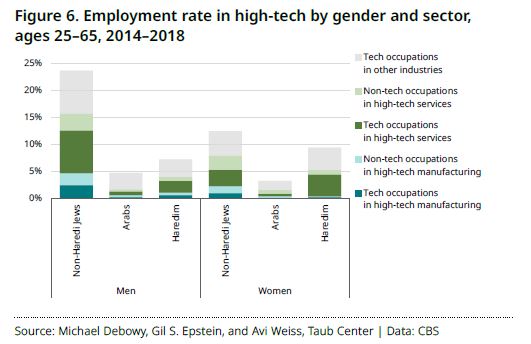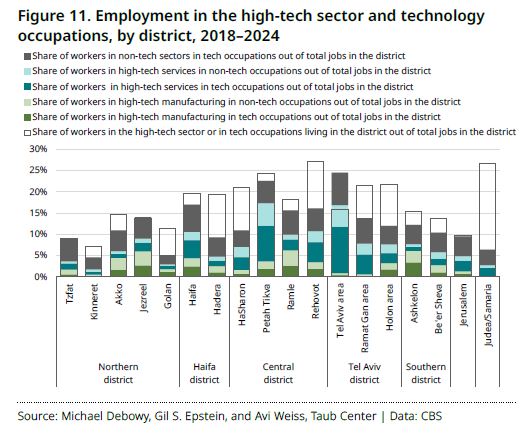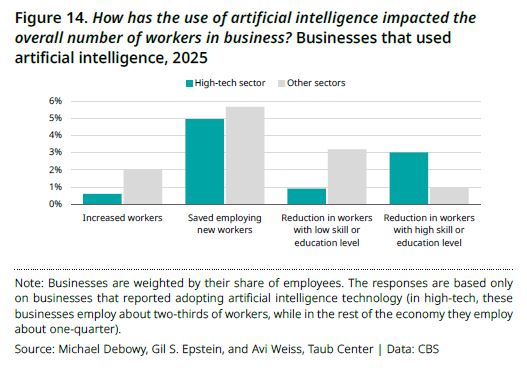Israel’s high-tech industry, the most productive sector in the economy, is entering a challenging period. This study reveals that the war and the artificial intelligence revolution are leaving employment in the sector in worse shape than in the past. Researchers Michael Debowy, Prof. Gil S. Epstein, and Prof. Avi Weiss point to rising unemployment among high-tech workers and declining employment in periphery areas. In addition, the study highlights deep social and demographic gaps, showing that only a small share of the Arab and Haredi (ultra-Orthodox) populations are employed in the field.
Rising unemployment in the high-tech industry
Between 2014 and 2023, the number of high-tech workers grew by about 60% — around 150,000 employees — mainly in research and development. Alongside this growth in employment, worker wages in the sector also rose: during this period, the average wage of technological and support staff in high-tech services was significantly higher than the average wage in other industries.
However, since the outbreak of the war, unemployment rates in high-tech services have climbed above the national average. Moreover, during 2024 the share of job vacancies in technological professions dropped compared to other occupations. This finding matches reports over the past year of a “junior talent tech crisis” in the sector — a sharp decline in available positions for inexperienced workers.
Social and geographic gaps
The study points to substantial employment disparities in high-tech by gender and population group. While nearly one-quarter of non-Haredi Jewish men are employed in high-tech industries and technological occupations, only about 12% of non-Haredi Jewish women work in these fields. Among the Haredi and Arab populations, employment rates in high-tech are even lower: less than 10% among Haredim and less than 5% among Arabs.

Geographically, in 2023 and 2024 employment in the high-tech sector declined in most areas of the country, particularly in the Northern, Kinneret, and Tzfat districts, while the Jerusalem and Jezreel districts saw a slight increase during this period. The study also shows that the Tel Aviv area leads in high-tech employment, followed by the Petah Tikva, Haifa, and Rehovot districts.

The impact of artificial intelligence on the high-tech sector
The study shows that high-tech services are leading the Israeli economy in adopting artificial intelligence, and as a result there has been a notable reduction in the recruitment of new employees and the replacement of skilled and educated workers with AI technologies. The researchers emphasize that, together with the high level of exposure of high-tech workers to artificial intelligence — shown in a previous study — this trend may lead to a significant long-term decline in employment in the sector in Israel.

Following the study’s findings, the researchers recommend formulating policies to leverage the artificial intelligence revolution to promote high-quality employment and minimize the harms of automation. They also stress the importance of making employment a central goal in plans for rehabilitating Israel’s periphery regions.




